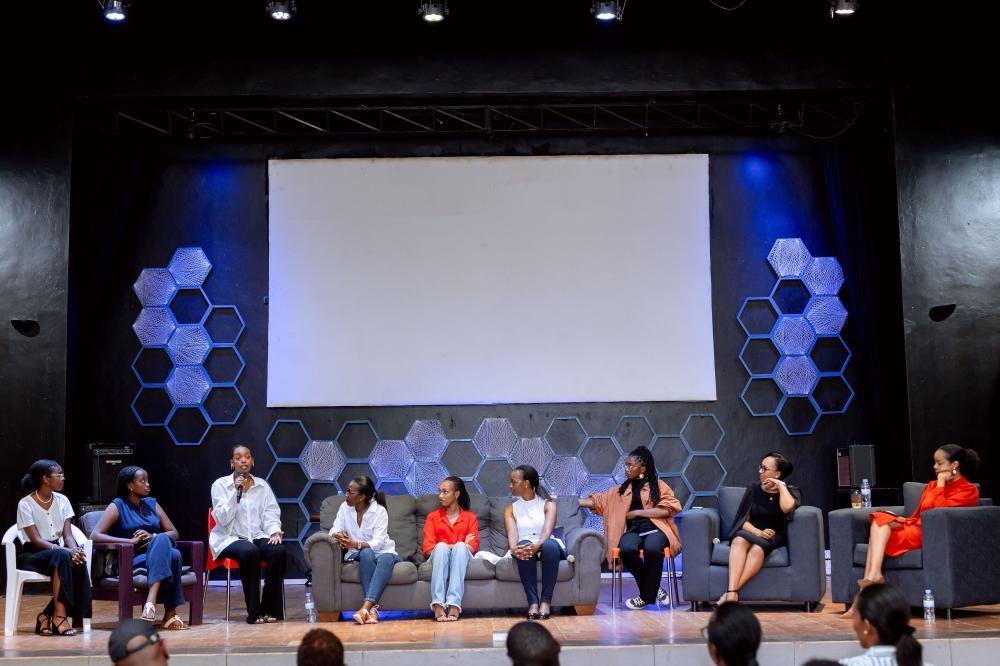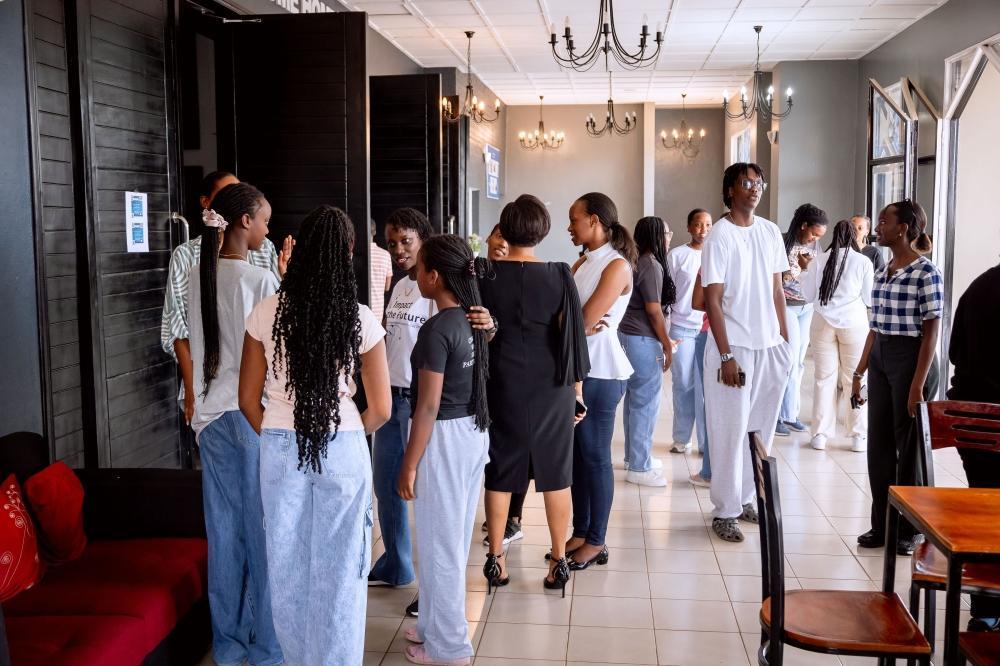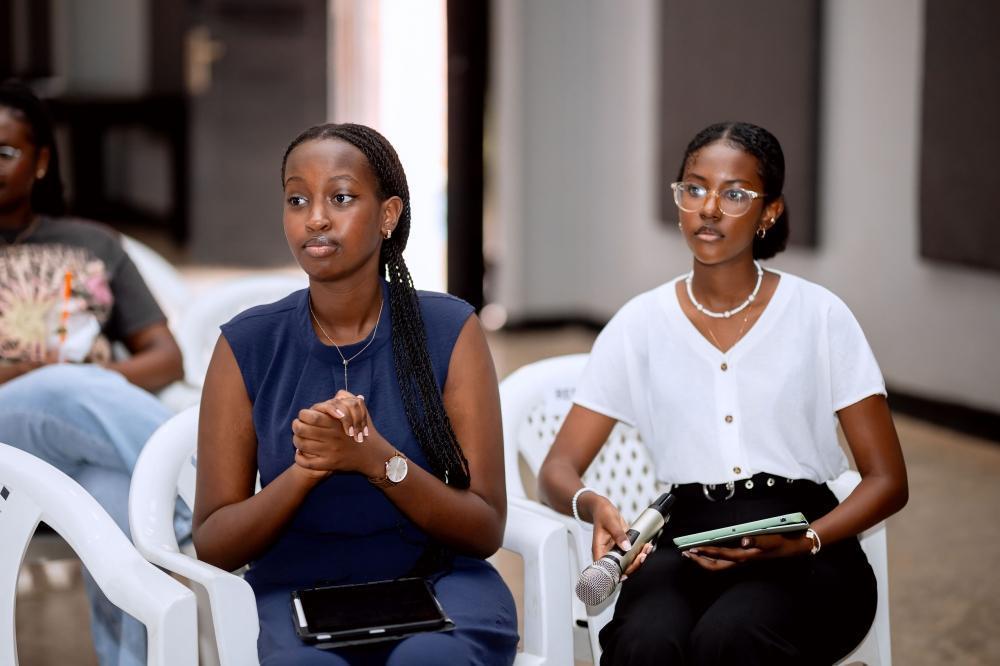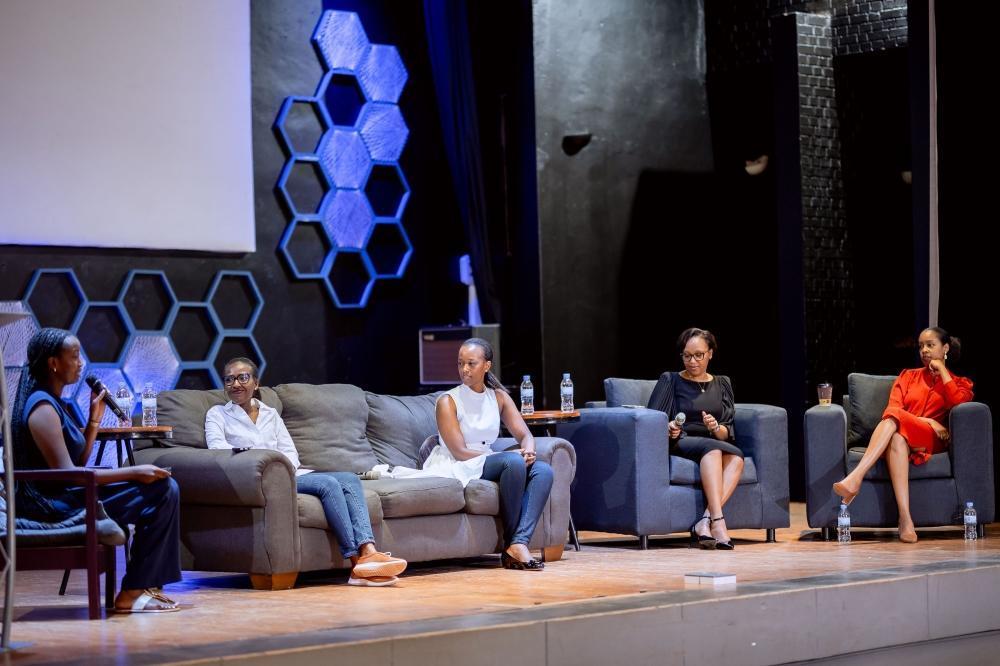Africa-Press – Rwanda. As a way to steer young girls towards a more equitable and thriving future, 17-year-olds Shannon Kanamugire and Kaze Karuretwa launched a platform dubbed “The Second Chance Foundation”, an NGO that empowers women and inspires future leaders to generate meaningful change in their communities.
Through conferences and outreach programmes, the teenagers encourage girls and women to utilise their full potential and foster a more capable future for themselves and their communities.
During a recent conference in Gacuriro, Kigali, dubbed “EmpowerHer” in observance of Women’s Month, the teenagers hosted an interactive session and invited various accomplished women in different careers to motivate teen girls through their professional journeys, and advising them on career, business, and leadership.
Word from career women
Dominique Alonga, the founder and CEO of Imagine We, a Rwandan publishing company that inspires the next generation of leaders through reading, shared that it took consistency to have her company, because “building her brand wasn’t a walk in the park”, but she consistently showed up anyway.
Participants at the EmpowerHer conference.
Alonga urged the girls to position themselves, take up spaces, boost their confidence, share knowledge and skills with others, and make the best of social media as it played a role in enhancing her business.
She further heartened youngsters to network, stressing that their system today will be their asset in the future—networking paves the way to new opportunities, like partnerships, opportunities, and even investment. Through one’s connections, they may discover possible clients or investors.
While operating a business, Alonga emphasised the magnitude of kindness, a value her mother imparted to her, and attests that doors opened for her, giving her connections that advanced her business.
Additionally, she highlighted the essence of social capital, stressing, “The first people who will buy your products are those you studied with. They are the tools and platforms that are in place to help you sell your products.”
Alonga underscored that communication is key as starting a business requires a good listener, and cautioned the audience to choose something that flows with their passion.
Shannon Kanamugire (L) and Kaze Karuretwa (R), co-founders of The Second Chance Foundation during the EmpowerHer session in Gacuriro, Kigali.
Elise Uwase, a youth advocate for Tanga Community, a Rwandan initiative that aims at steering women, girls, and young people’s actions for social change, stressed that she has always been a ‘champion of change’ which kept her advancing in her work.
She heartened youth to get out of their comfort zone to reach where they envision and interest themselves in leadership by taking responsibility for what is around them.
Like the common adage “comparison is the thief of joy”, many young people are scared by the pressure of achieving their goals or meeting their targets at a specific time as their peers, or colleagues, which Uwase discourages.
She believes that everyone should move at their own pace.
Cheyenne Muvunyi, an entrepreneur and the founder of Glow Force, a Kigali independent brand of natural products for body and hair, urged young girls to start businesses earlier explaining that she was held back, but thankfully, her close circles t provided her with the emotional support that laid the foundation for her to pursue her passion.
Panelists listen attentively to moderator Kanamugire’s question during the EmpowerHer conference.
She called upon teenage girls to drop the mind-set of perceiving others who do the same business or craft as theirs as enemies, and instead, learn from them since there is enough room for everyone to thrive.
Muvunyi told youngsters to seek mentorship that aligns with their values and goals to enable them to tap into knowledge and opportunities that will steer their career path efficiently.
“Experience several ideas and things. Don’t limit yourself to just one thing you’re good at, allow yourself to learn new things and be open to failure.”
She also stressed the significance of finding mentors, especially those in one’s area of career and interest because they will offer guidance.
Carine Umutoni, the Managing Director of Ecobank, reminded participants to go beyond self-doubt since growth is uncomfortable, drawing an example of how she joined the banking sector at the age of 24, working with people who were 20 years older, but she wasn’t scared to ask and learn from them.
“I asked for advice, don’t be afraid to show vulnerability and know what you are good at and specialise in it.”
She also expressed the need to start saving early and learning something new daily.
Patience Mutesi, the Managing Director of BPR Bank Rwanda PLC, told teenagers that what sparks their curiosity is where their passion lies.
She heartened young people to shun despising humble beginnings but rather take on any job even when it doesn’t excite them.
“There is the availability of information out there that ought to be utilised. We are all in a learning process, and we should compare ourselves to our previous stage to assess our improvement, and most importantly, be ethical and excellent in our work,” Mutesi urged.
Molly Rwigamba, the Managing Partner at RR Associates and Co Advocates, told girls to take advantage of the numerous opportunities available and create an impact.
She also noted that possession of integrity is a life component for gaining people’s trust and passing on skills to others.
“You don’t need to tick all the boxes to be successful”, Rwigamba added.
Diana Mpyisi, the founder and CEO of Blue Oceans, a creative agency that specialises in communication and marketing services to the private, public, and civil society sectors, urged girls to have the capacity and drive to tell their own stories.
She encouraged participants to practice Canadian author Malcolm Gladwell’s “10,000-hour rule,” which states that the key to achieving true expertise in any skill is simply a matter of practice, although in the correct way, for at least 10,000 hours.
“Whatever you do, whether accounting, design, writing, and so forth, invest your energy, and evade imposter syndrome, a behavioural health phenomenon described as self-doubt of intellect, skills, or accomplishments among high-achieving individuals,” Mpyisi stated.
Just like the other speakers, she discouraged comfort, stressing that it is an addiction that keeps one in a mediocre state, thus recommending practicing deliberate discomfort.
For More News And Analysis About Rwanda Follow Africa-Press









